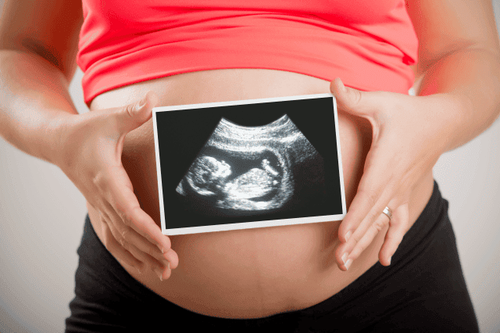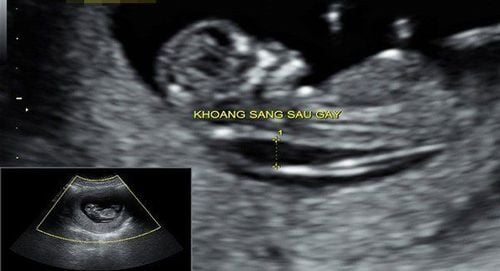This is an automatically translated article.
The article is professionally consulted by Master, Doctor Nguyen Thi Hong On - Department of Obstetrics and Gynecology - Vinmec Phu Quoc International General Hospital.CVS is an interventional procedure commonly used in prenatal diagnosis, helping doctors screen for genetic abnormalities and infections in the fetus. Normal chorionic villus biopsies are performed early in pregnancy.
1. Importance of chorionic villus biopsies
A chorionic villus biopsies (CVS) is a procedure performed in the early stages of pregnancy to check for abnormalities in the fetus. When a placental biopsy is done depends on whether the mother or father of the baby has some of the risk factors associated with a genetic disease that runs in families. This procedure is also performed on mothers over 35 years of age, because too advanced pregnancy often increases the risk of birth defects in the baby.If there is a family history of certain genetic conditions, such as a chromosomal disorder (such as Down syndrome) or a blood disorder (such as hemophilia), a chorionic villus biopsy will be used. used to find those genetic disorders in the baby. On the other hand, chorionic villus sampling cannot find congenital neural tube defects, and cannot be used to check for certain conditions, such as whether the fetal lungs have developed.. These are tiny finger-shaped tissues in the placenta that contain the same genetic material as the cells in a fetus's body. When performing a chorionic villus biopsy, the doctor will extract a sample of chorionic villus cells for testing to check for abnormalities in the fetus.
2. When to perform chorionic villus biopsies?
Chorionic villus biopsies are usually performed early in pregnancy, between 12-14 weeks, with a favorable placental position. This allows pregnant women to check and know the health of the fetus and predict the possibility of genetic disease risks. From there, the mother can make an early decision to stop or continue the pregnancy. Placental biopsies are usually available more quickly than amniocentesis, which is also a prenatal diagnostic test.
Sinh thiết gai nhau thường được thực hiện trong tuần thứ 12 - 14 của thai kỳ
3. Things pregnant women need to know before performing a chorionic villus biopsy
A chorionic villus biopsy is unlikely to detect neural tube defects in the fetus. A normal papillary biopsy does not mean that the baby is completely healthy, as there are a number of other conditions and conditions that cannot be detected by this test.On the other hand, amniocentesis (performed later than chorionic villus sampling) can be used to detect other conditions in the fetus, such as neural tube defects. Therefore, if a chorionic villus biopsy cannot provide clear results, your doctor will recommend an amniocentesis test for more accurate results.
How the placenta biopsy results depends on how the sample was collected. If you have a vaginal infection, your doctor will consider performing a transperitoneal biopsy instead of the cervix.
A placental biopsy causes bleeding, resulting in the mixing of maternal and fetal blood. If the mother's Rh blood type is negative while the baby's blood is Rh positive, the doctor will have to inject Rh immunoglobulin (a type of immune globulin) serum to prevent this from harming the unborn baby.
4. Notes after performing chorionic villus biopsies
After the doctor performs a chorionic villus biopsy, the medical professional will use an ultrasound machine to monitor the fetal heart rate. You may notice some vaginal bleeding after the sample collection and ultrasound.
The placental tissue sample will then be sent to the laboratory for examination and analysis. When the results of a chorionic villus biopsies are available will depend on the complexity of the analytical method, usually from a few days to a few weeks. The following are some tips for pregnant women after chorionic villus sampling:
Pregnant women should rest for about 24 hours, avoiding heavy work. Shower activities as usual. Re-examination when showing signs of severe abdominal pain, vaginal discharge, vaginal bleeding, fever symptoms. Pregnant women will be instructed to come and get results according to the scheduled appointment. The doctor will check the results and advise the pregnant woman to prepare for the next prenatal visit.

Bác sĩ tư vấn cho thai phụ về kết quả xét nghiệm chẩn đoán trước sinh
At the system of Clinics, Vinmec International General Hospital nationwide is implementing the PREPARATION PACKAGE program to help pregnant women feel secure to take care of their health and their babies both before giving birth - during and after birth. at birth with all necessary screening tests.
Please dial HOTLINE for more information or register for an appointment HERE. Download MyVinmec app to make appointments faster and to manage your bookings easily.













